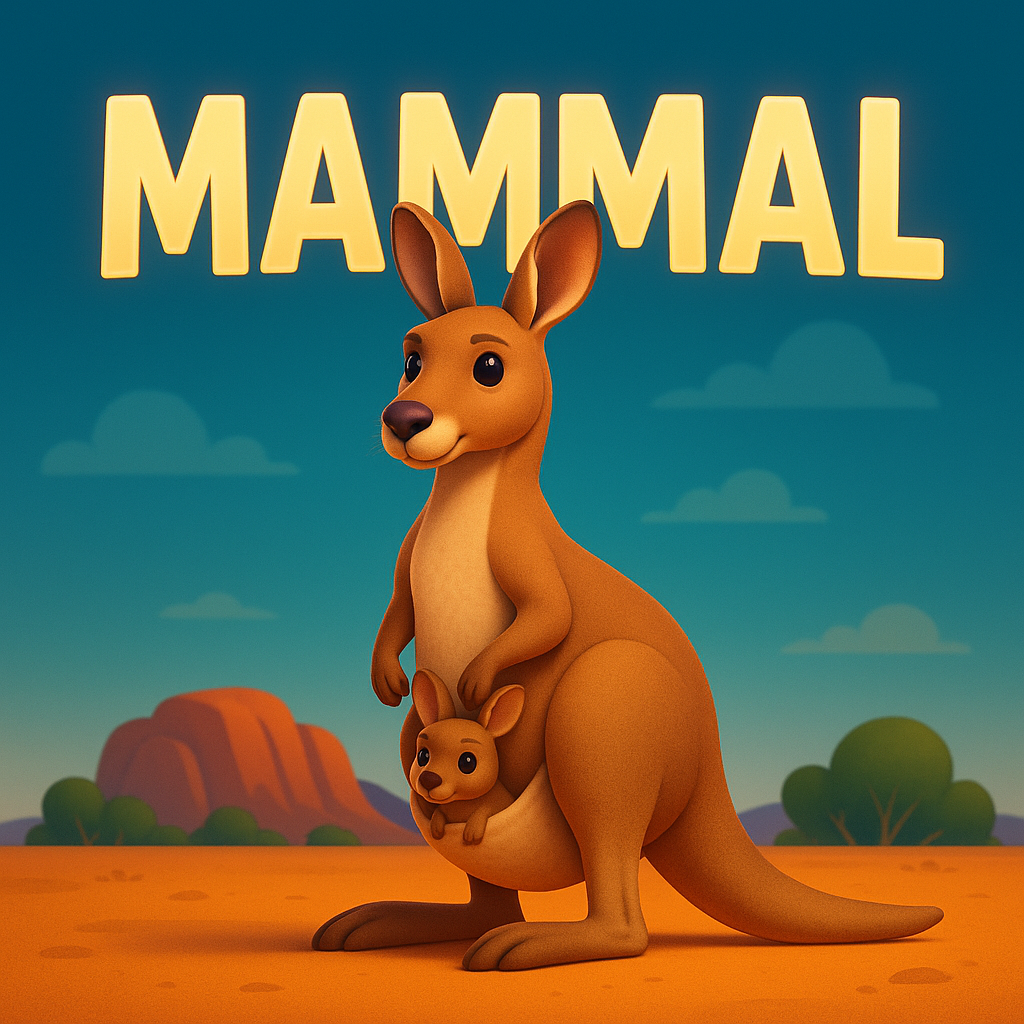Mammal
Definition
Mammal refers to any warm-blooded vertebrate of the class Mammalia, characterized by the presence of hair or fur, three middle ear bones, and mammary glands in females for feeding their young. Its plural form is mammals.
Parts of Speech
- Noun
Pronunciation
American English
- IPA: /ˈmæm.əl/
- Respelling: MAM-uhl
British English
- IPA: /ˈmæm.əl/
- Respelling: MAM-uhl
Etymology
Mid 17th century: from Latin mammālius “of the breast,” from mamma “breast,” referring to the mammary glands.
Derivatives
- mammalian (adjective)
- mammalogy (noun)
- mammalogist (noun)
- mammary (adjective)
Synonyms
- warm-blooded vertebrate
Antonyms
- reptile (cold-blooded vertebrate)
- ectotherm
Usage
"Humans are mammals, sharing key features like hair and live birth."
"Bats are the only mammals capable of sustained flight."
Related Terms
- Vertebrate: Animals with a backbone or spinal column.
- Endotherm: Organisms that maintain a constant body temperature.
- Mammary gland: Glands in female mammals that produce milk.
- Marsupial: A subclass of mammals bearing young that develop in a pouch.
- Monotreme: Egg-laying mammals such as the platypus and echidna.
Detailed Definitions
Noun
- A warm-blooded vertebrate of the class Mammalia – characterized by hair or fur, three middle ear bones, and mammary glands.
- Example: "The blue whale is the largest mammal on Earth."
- A member of one of three major subclasses:
- Monotreme: Egg-laying mammals (e.g., platypus, echidna).
- Example: "The platypus is a unique monotreme mammal of Australia."
- Marsupial: Mammals with pouches (e.g., kangaroos, koalas).
- Example: "Kangaroos are iconic Australian marsupial mammals."
- Placental: Mammals in which the young develop inside a uterus connected by a placenta (e.g., humans, whales, rodents).
- Example: "Elephants are large placental mammals known for their long gestation."
- Monotreme: Egg-laying mammals (e.g., platypus, echidna).
mammal








